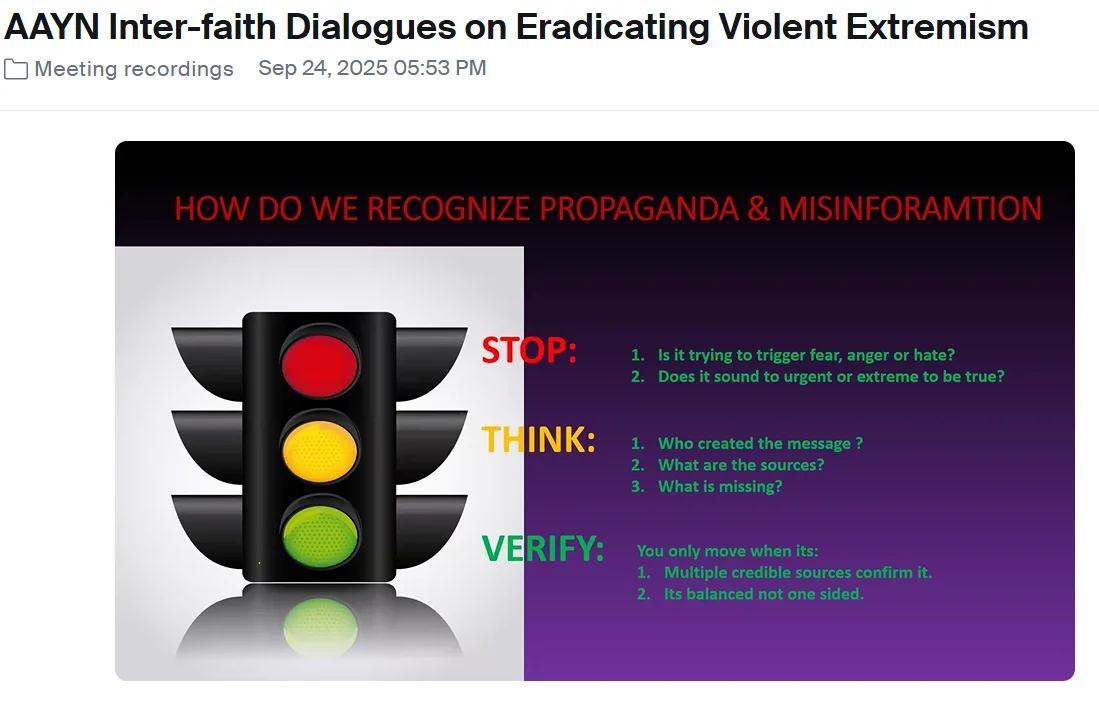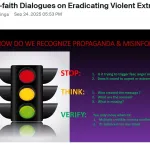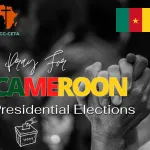AACC convened interfaith youth webinars to interrogate the role of technology in the prevalence of violent extremism
From the 23rd – 26th of September AACC held a webinar series on Youth Interfaith Dialogues on Eradicating Violent Extremism. The four-day event was facilitated by Mr. Kelvin Vundi and moderated by Ms. Esther Kasako. The webinar attracted over 65 participants from all across Africa, in a highly informative, and insightful session. The aim was to build youth capacity, empowering them to become active agents in preventing and countering violent extremism, through facilitated inter and intra-faith dialogues, fostering resilience, critical thinking and community cohesion.
The sessions explored concepts on the root causes of violent extremism noting Africa’s youth bulge, economic issues, and technology as contributing factors to violent extremism. Mr. Vundi noted that Africa’s population being majorly comprised of young people, serves as a big potential for violent extremism recruiters to target vulnerable youth, especially those in poor economies. Moreover, these recruiters leverage digital media to push violent extremism narrative and finally recruit young unsuspecting individuals. Another contributing factor is the false faith ideologies and manipulative religious narratives used by violent extremist groups to mislead young people into acts of violence.
To note, was the role played by women both as the victims and initiators of violent extremism. Women in violent extremism are faced with dead crisis including sexual abuse, victimization by counter-terrorism forces, loss of livelihood and property and exploitation of traditional roles. While as the initiators they are responsible for: Ideological enforcement, recruitment and radicalization among financial and operational support, indicating that both young men and women risk to be recruited into violent extremist groups, thus approaches to P/CVE must focus on a gendered analysis, for complete eradication of violent extremism in Africa.
This important discussion also underscored the role of youth in countering violent extremism by challenging false faith ideologies and leveraging digital media. To this effect the training provided media literacy skills for youths to discern and deconstruct violent extremism narratives, propaganda, and misinformation coupled with the importance of faith and value for diversity of different religions for better outcomes.
The immediate and enthusiastic feedback from the participants underscored the high value and impact of the training. Attendees highlighted the relevance of the discussions and the quality of the delivery, emphasizing a strong desire for continued engagement. “The content was delivered so clearly and in an engaging way, it truly was time well spent. I walked away with actionable insights.”
Another participant echoed this sentiment, stating, “I thoroughly enjoyed the presentation and appreciated the expertise of the facilitator. The methods for leveraging digital media to counter extremist narratives were particularly insightful and the entire session felt crucial for African youth.”
In response to this positive feedback and the highlighted need for continuous action, the AACC affirmed its commitment to continuity. With the new skills and knowledge acquired, participants will have a tangible opportunity to translate learning into action by applying for seed capital amounting to $2,000 USD. This funding is intended to support grassroots projects geared toward addressing tech-facilitated violent extremism, solidifying the AACC's promise to ensure continuous engagement in creating peace across Africa.
In the photo: Screenshot from Mr. Vundi’s Presentation




